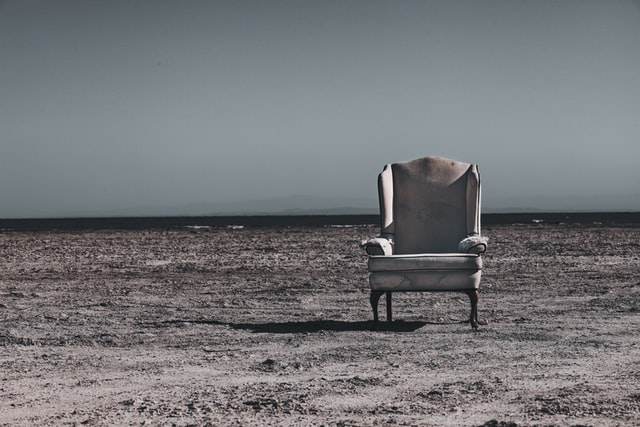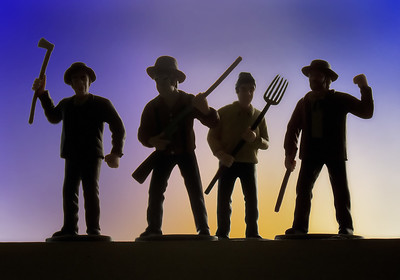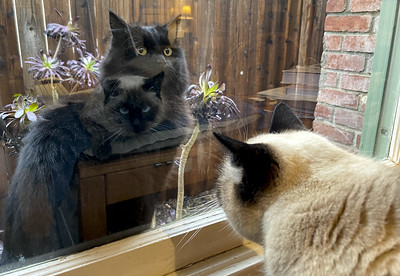I have to tell you: I am so relieved that my neighbors commenting on our local fire department’s Facebook page are such skilled wildland fire fighters that they know exactly what went wrong with a controlled burn near my town a couple of weeks ago. To think that the burn had been entrusted to people who have studied, trained, and risked their lives for years—people who need to be paid, outfitted, and managed!
Really, if the crowd on social media had been in charge, it would been just fine.
Not.
Have you noticed that Armchair Expertise seems to be at an all-time high? After I used the phrase “armchair traveler” with my students recently, I did research to find out where it came from [here’s the answer]. That was the same day that my neighbors exploded with “advice” for the fire fighters whose controlled burn, meant to mitigate fire risk in the hills nearby, jumped the lines and was briefly the talk of the neighborhood.
Fortunately, the fire fighters did just fine without my neighbors’ help.
I realize that know-it-all advice from people who can’t be bothered to get up and actually help probably started with the cavemen….
You know, Ogg, if you’d used a flint-tipped arrow instead of that spear, you might have brought home more meat for me.
…but lately, it’s become a reflex, enabled by the media people consume and fueled by the ease of social media.
It all started with reality

Photo by Craig Marolf on Unsplash
Reality TV, that is. I truly believe that the rise of Reality TV in the 90s is at the root of a lot of our recent cultural changes. Personally, I never watched it. But I did notice a change in how people seemed to perceive their role in events that didn’t concern them.
Before Reality TV, people tended to get a view of events that excluded them. When you watched the evening TV news, you didn’t expect that your opinion would be addressed. And when you watched a fictional storyline unfold, you had no sense that you, an everyday person, were in there. It was fiction, created for entertainment. News was information, created to inform you.
Reality TV, along with 24-hour cable news, did away with that separation. We were supposed to believe that the Survivors really were fighting for their lives, and that we really could be one of them. We were led to believe that our opinions about the news were of equal importance to the news itself.
Then reality went social
It got worse with the arrival of social media. Suddenly, you didn’t have to take out a piece of paper and write, find a stamp and send, when you wanted to express your opinion. You didn’t actually have to show up at your school board meeting. You didn’t even have to face your real, live neighbors when you could just pretend to be a neighbor on NextDoor.
There was a lot of pushback in the past about the “gatekeepers” who were controlling the media and not allowing real voices in. These days, it feels like we could use a few gatekeepers!
The result: a lack of respect for expertise

Armchair everythings abound in our society. Armchair epidemiologists argue with the people who actually went to school and actually learned how to read data. Armchair legislators hate everything their government does but can’t be bothered to get to work to make change. Armchair psychologists can tell you exactly what’s wrong with you, but apparently haven’t learned the phrase, “physician, heal thyself.”
In many cases, this false expertise is pretty harmless. Yeah, it’s really annoying to hear your buddy who never held a movie camera critiquing a cinematographer’s camera angles, but the only person who looks bad is him.
But it really makes me sad to watch a group of people criticize the fire fighters who are out there—right that moment—busting their asses to protect the people criticizing them. The fire fighters did, indeed, let a controlled burn slip its bounds. “But remember,” I felt like yelling into my computer, “they were doing that burn at risk to their own lives to save your miserable hide!”
And I don’t even want to go into the public vitriol that has led a record number of public health employees to leave their jobs.
Armchairs are for sitting
I don’t think that being the citizen of a democracy should be a spectator sport. Of course, if it turns out that there was negligence on the part of a public employee, that should be exposed. Our democracy secures checks and balances and a free press for just that reason.
But this armchair criticism of every single action of our skilled public employees is doing no favors to our democracy. So many people can’t be bothered to take part in our public discourse without constantly trying to undermine others, as if they think they are contestants on Survivor, hoping to be the last one on the island.
All alone.
With no one else there to put out their fires.








